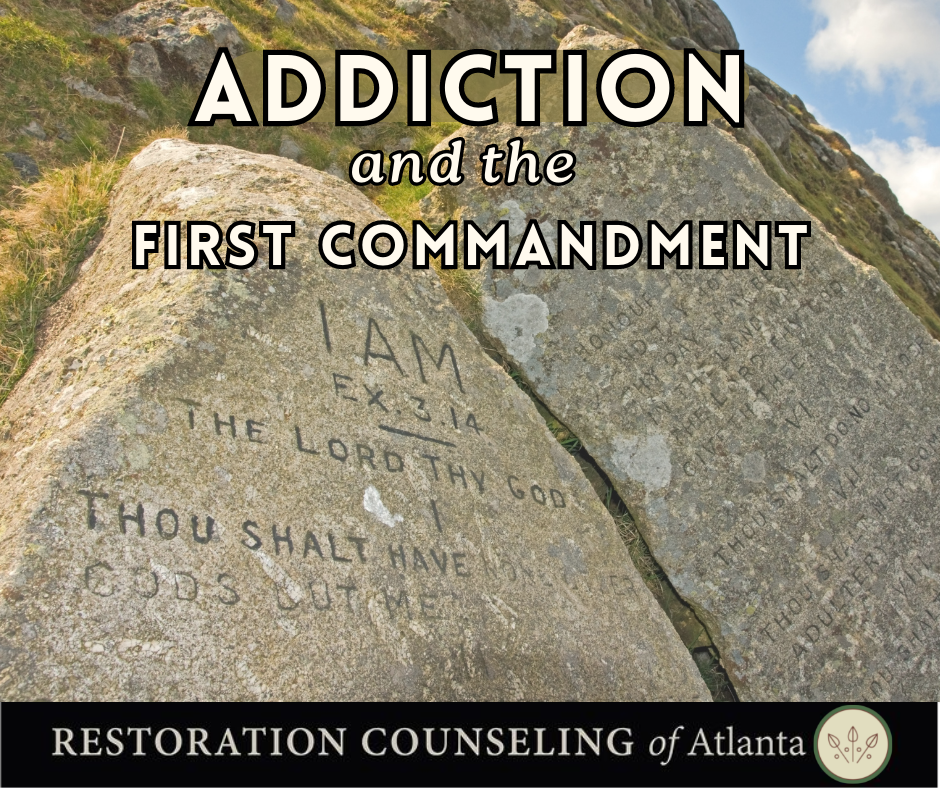Sometimes talking about addiction with a fellow believer, I get the impression he or she would rather be someplace else – someplace where the earth smells of summer, and the sky is dotted with puffy clouds with smiley faces. My first clue might be the way the voice is lowered as the word addiction is spoken. It reminds me of someone’s old maid aunt whispering S-E-X and glancing about to be sure nobody heard. From another, there’s a stifled yawn. Sometimes I see a sorrowful look of concern behind which hides a secret prayer that says thank you, Lord, that I don’t have that problem.
For reasons of my own, I intend to continue talking about addiction. As a matter of fact, it would be hard to get me to stop talking about it, especially since recovery from it is so intimately attached to my own walk with God. But to avoid the whispering, the yawning, and the denial, I’m going to replace the A-word with some terms that are a bit less disconcerting. The terms are attachments and bad habits.
In fairness to the reader, I confess that I’ll still be talking about addiction. To exacerbate any assault on certain sensibilities, before we’re through, I may throw in the word idolatry to clarify the presence of “the first commandment” in our title. So if you happen to be linguistically hypersensitive, a whisperer, a yawner, or in denial, now would be the time to exit downstage left.
When I was very young, I discovered Psalm 37 and was enthralled as I misread verses 4 and 5. Stuffed into those few lines were just what I was looking for. I would be given stuff. What I got would be what I wanted, and I would be delighted. I was not such a philistine as to merely desire stuff. I truly wished to feel safe and happy, maybe even loved. My trolley jumped the track when I came to believe the source of these desires was the stuff. Day by day, as I chased after the stuff, I found myself farther away from peace, love, and joy. Peace came to mean being unconscious; love became meaningless sex; and joy was the excitement that came in a rush of dopamine through neural pathways, followed by the sound of silence and then the plaintive greeting, hello, darkness, my old friend.
Ultimately the stuff itself became the desire of my heart. As the amount of stuff increased, and every good thing strangely decreased, the stuff became an attachment – something I came to believe was not only desirable but necessary to my well-being. There just never seemed to be enough stuff. It would be a long time before I reread Psalm 37 and realized it says to delight yourself in the Lord, not stuff.
And there I was, stuck with an attachment, a term I had decided to stick with because it was a much gentler and friendlier sounding word than addiction. I stuck by the decision until one day when I learned that the original meaning of attachment is found in some very old French and German words. The words mean staked or nailed to something we can’t get free from. The image of someone nailed to something (a cross perhaps) bothered me so much that I decided to find another label. I came up with a bad habit that seemed friendlier yet. I put my newly Christened bad habit into a list that included chewing gum and drinking too much coffee. I continued hopefully, then doggedly, to pursue my heart’s desire, which is to say, stuff.
I have chosen the word stuff to prepare for the observation that not all addictions (oops, bad habits) involve drugs or alcohol. For example, in the preceding paragraphs, we can replace the word stuff with wealth, success, popularity, or power as objects of affection, and the process is still an addiction. Does that mean we can become attached/addicted to any habitual bad behavior, and what makes it bad is that it prevents us from receiving our true heart’s desire? Someone once observed that we can’t receive our true heart’s desire because our hands are too full of worthless junk that we refuse to let go of. Is that what can happen to us? Yep.
Just keep in mind that addiction runs on action like a car runs on gasoline; that is, addiction needs behavior to keep it going. If we stop doing drugs, gambling, obsessing, or whatever, we are no longer actively addicted. But beware. Abstinence does not remove learned behavior in most cases. Members of Alcoholics Anonymous, some of whom haven’t drunk in years, continue to refer to themselves as alcoholics. They know they haven’t forgotten how it’s done or what will start the process up again.
And so, it was clear that the process wasn’t working. The time came to stop playing around and to call a spade a shovel. I borrow from the late Gerald G. May, MD, for an appropriate definition. He wrote that addiction (there’s your shovel) is any compulsive, habitual behavior that limits the freedom of human desire. His reference to desire took me back to Psalm 37 and the promise that God will give us the desires of our hearts. That seemed to say God has no problem with desire, or even fulfilling it. Apparently, the difficulty lay with what was desired. As I would eventually discover, curiously, the right thing to be desired and the one who will fulfill the desire is the same. Say what?
Let’s look at what we’ve been told:
Delight thyself also in the Lord, and he shall give thee the desires of thine heart. (Ps. 37:3 KJV)
Things we desire are important to us. Accordingly, what we desire most is the most important. What’s important to us delights us, and the desire the psalmist speaks of is a desire of the heart, something spiritual, not something of the world. Just in case we missed it when we were thinking about everything we wanted and planning on naming and claiming it, the verse is pretty clear. Delight yourself in the Lord. When we put all this together, we have the God in whom we delight and desire and who, by His grace, will give Himself to us. A question may arise. Does this mean that we should delight in nothing else? No, but if He’s not at the top of our list of important stuff, we can expect to run into trouble. The first commandment makes that pretty clear. Anything we put before Him comes under the heading of idolatry.
Oh yes, I nearly forgot – addiction is idolatry.
Be happy.

Written by: Patrick Caffrey, LPC
Roswell Location
pat@restorationcounselingatl.com, ext. 114
Patrick counsels adults who struggle with alcoholism and other forms of substance abuse, as well as related family issues. These include adult children of alcoholics (ACOA) and persons who are codependent. Pat has also written and published three books addressing the subject of addiction. His books are available through www.amazon.com or may be purchased at the Roswell office.

